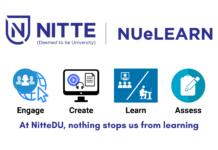Coding bootcamps have become a popular way for individuals to quickly acquire the skills and knowledge needed to secure jobs in the information technology industry. These bootcamps are typically short, intensive programs that teach practical coding skills through online or in-person instruction. Many coding bootcamps offer specialized instruction in areas like cybersecurity or data analytics and prepare students for various career paths such as web development and UX/UI design. In this article, we discuss what a Coding Certification Bootcamp is, what its benefits are, and help you decide whether you should go for a bootcamp to learn your dream topic.
Are coding Bootcamps worth it?
According to the Bureau of Labor Statistics (BLS), job growth rates in the computer and information technology field is projected to grow at a much faster rate than other occupations, with an 11% increase between 2019 and 2029. Furthermore, the BLS reports that professionals in the IT industry typically make a median salary of $88,240, although salaries can vary depending on location, specific role, experience, and specialization within the tech industry.
Coding bootcamps can prepare graduates to enter the workforce with tangible experience and a portfolio of work. These bootcamps often target their instruction to a specific career track, focusing on relevant technologies, skills, and languages. They can be a good fit for someone just starting out in tech, as well as for tech professionals trying to advance in their careers.
As per the Council on Integrity in Results Reporting (CIRR), graduates of coding bootcamps find employment in their field of study at a high rate, often within a relatively short amount of time. In fact, according to CIRR by 46 coding bootcamps between January and June 2019, the mean percentage of graduates employed in the field post 180 days of graduation was around 79%. However, employment rates do vary depending on the bootcamp and also job market conditions at the time of the job search.
Employers also view bootcamps favorably, with a 2017 survey from Indeed reporting that 84% of employers surveyed consider bootcamp graduates just as or more prepared for work as those with computer science degrees. It is worth noting that bootcamps can vary greatly in quality and outcomes, so it is important for individuals to do their research and choose a reputable bootcamp that aligns with their career goals.
Salaries post coding bootcamps
Coding bootcamp graduates’ salaries can be influenced by various factors, including their previous work experience, technical specialization, and location. The level of experience a graduate has acquired before attending a bootcamp can contribute to a higher salary. For instance, among graduates of Fullstack Academy’s 2019 Immersive Bootcamp in Chicago, 13% secured a job with an annual salary lower than $60,000, while about 24% of the graduates made more than $80,000 annually. The majority of the graduates earned a salary ranging between $60,000-$80,000.
The salary levels can also vary based on the specific career track that a bootcamp focuses on. Each specialty in the tech industry comes with its own typical salary range. For instance, the Bureau of Labor Statistics reports that the median annual salary for web developers or digital designers was $73,760 in 2019. In contrast, data scientists earned $94,280 annually, while software engineers earned $107,510.
These differences in salary levels are often reflected in bootcamp outcome data. For example, graduates of Codeup’s San Antonio data science bootcamp in 2019 secured a median salary that was approximately $22,000 higher than their web development counterparts.
Career Support for Bootcamp Graduates
Apart from the technical skills training, bootcamp students typically gain access to career services that help them in their job search after graduation. These services may include resume-building, professional portfolios, and interview preparation. Bootcamps also provide networking opportunities where students can connect with local professionals, businesses, and alumni. Moreover, many bootcamps partner with local employers to recruit their graduates for employment. Some Bootcamp providers like Simplilearn even offer job guarantees or internships to learners, although such offers are rare. There are Bootcamps in partnership with University departments. In such cases, the university placement cell or alumni association also provides placement assistance to learners to secure good jobs with high packages.
Conclusion
Overall, coding bootcamps are an increasingly popular path to a job in the tech industry. Bootcamps are short, intensive educational programs that prepare graduates to enter the tech industry by teaching relevant, real-world coding skills. Coding bootcamps can be an effective way for individuals to quickly gain the skills and knowledge needed to enter the information technology industry. With the projected job growth and high employment rates for bootcamp graduates, it is clear that these programs can lead to successful careers in tech. They offer specialized instruction in various fields of computer science, such as cybersecurity or data analytics. Coding bootcamps can prepare students for various career paths, from web development to UX/UI design.




![Merchant Navy Recruitment 2024: [4000+ Posts]: How To Apply Online? Merchant Navy Recruitment 2024: [4000+ Posts]: How To Apply Online?](https://futurewithtech.com/wp-content/uploads/2024/05/Indian-Merchant-Navy-Recruitment-2024-218x150.jpg)
